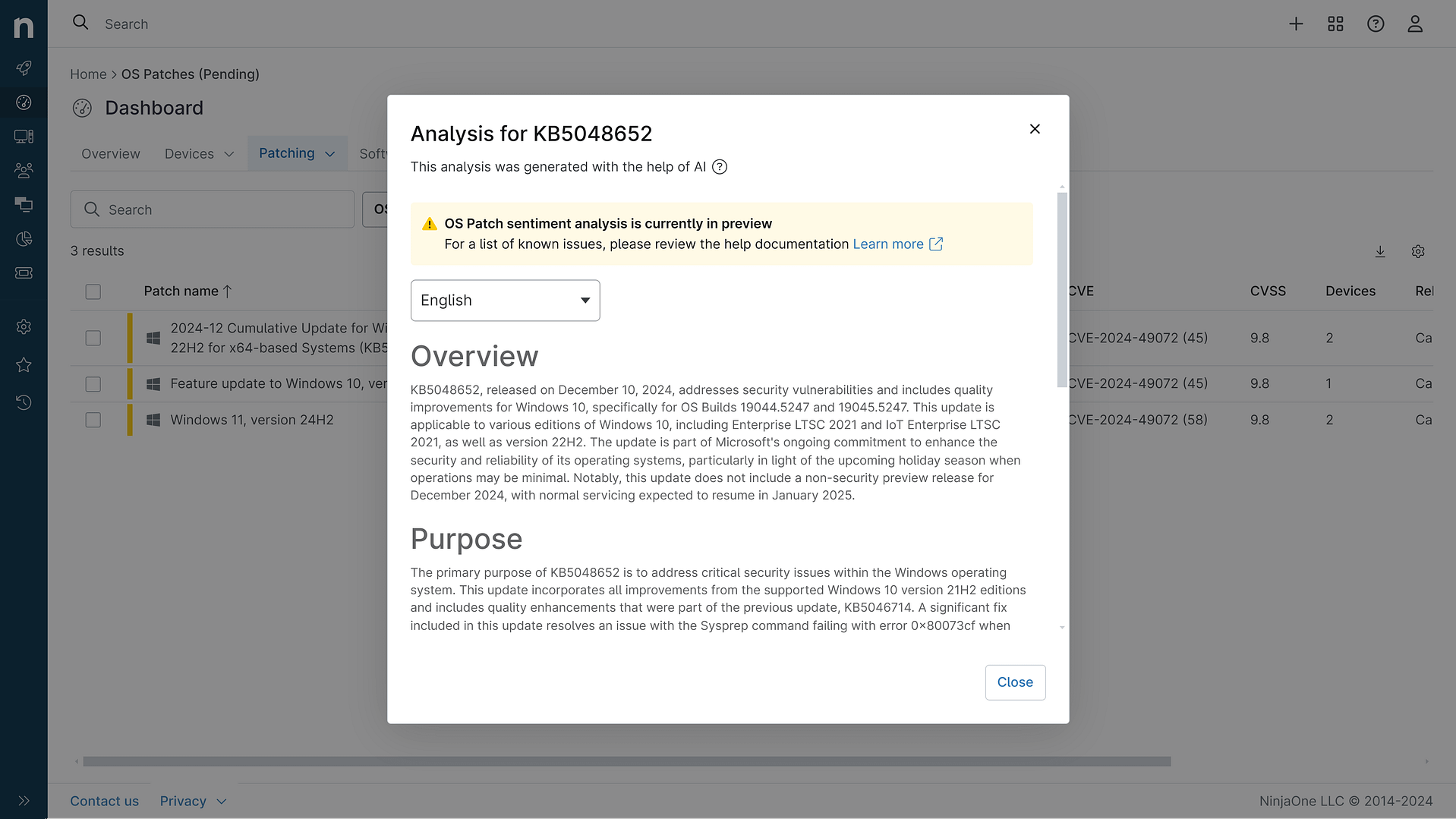KB5037916: Overview with user sentiment and feedback
Last Updated December 22, 2024
Probability of successful installation and continued operation of the machine
Overview
The KB5037916 update, released on May 14, 2024, is a Security and Quality Rollup for the .NET Framework 4.8 specifically targeting Windows Server 2008 R2 SP1. This update is part of Microsoft's ongoing support for systems that have transitioned to Extended Security Update (ESU) support, which means that while mainstream support has ended, critical security updates continue to be provided. This update is cumulative, meaning it includes all previously released security improvements for the .NET Framework 4.8, ensuring that systems remain secure and reliable.
The update is particularly important for organizations still using Windows Server 2008 R2 SP1, as it addresses various quality and reliability issues that have been identified in the framework. Users are encouraged to apply this update as part of their regular maintenance routines to ensure optimal performance and security of their applications running on the .NET Framework.
General Purpose
The primary purpose of KB5037916 is to enhance the security and reliability of the .NET Framework 4.8 on Windows Server 2008 R2 SP1. This update does not introduce new security features but consolidates all previous security improvements into a single package. It addresses several critical issues, including crashes that may occur when multiple threads query the same managed type, performance regressions on 32-bit platforms, and issues related to wildcard format changes in IIS 10. Additionally, it resolves application crashes linked to specific methods in the Windows Presentation Foundation (WPF). Overall, this update is essential for maintaining the stability and security of applications relying on the .NET Framework.
General Sentiment
The general sentiment surrounding KB5037916 appears to be cautiously positive. Users recognize the importance of maintaining security and reliability in legacy systems, especially those still operating on Windows Server 2008 R2 SP1. The update is seen as a necessary step to mitigate known issues and improve performance. However, some users express concerns about the ongoing reliance on an outdated operating system and the potential risks associated with extended support. Overall, while the update is welcomed, it also highlights the need for organizations to consider upgrading to more current systems to avoid future vulnerabilities.
Known Issues
- Microsoft is not currently aware of any issues in this update.
Disclaimer: We take measures to ensure that AI-generated content is of the highest possible quality, but we cannot guarantee its accuracy and recommend that users do their own independent research. Generated on 2024-12-22 12:46 AM
